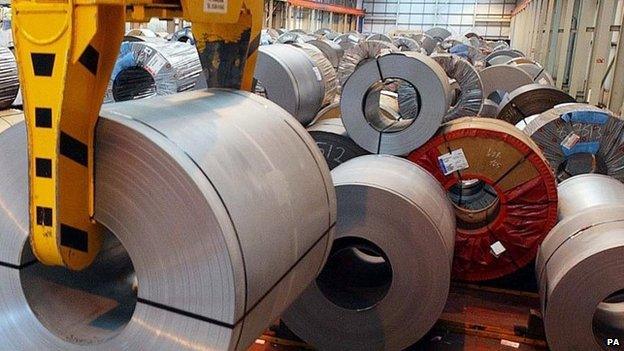Manufacturing wages on the rise, says EEF survey
- Published

Manufacturing represents a tenth of the UK's economy
Wages in the manufacturing sector are rising faster than most other parts of the economy, a survey has suggested.
Engineering and manufacturing employers' organisation EEF found that pay rose by 2.6% over the past year while wages have been stagnant or falling in other industries.
EEF said business confidence in the sector was improving.
The study came as the Bank of England said low wage increases could become the norm over the next few years.
Wider economy
EEF, which represents a quarter of Britain's manufacturers, said wage inflation in its sector had risen from 2.4% last year.
This estimate compared favourably with the latest official figures which showed wages in the wider economy had fallen by 0.2% over the past three months.
Manufacturing, which represents about 10% of the UK economy, is one of the few sectors which has seen wages rise by more than inflation.
Salaries in the construction, banking and services sectors have all fallen recently.
'Challenging years'
EEF chief economist Lee Hopley said: "Manufacturing pay continues to run ahead of the wider economy with signs that the pressure on household budgets, at least for employees in industry, is starting to unwind.
"After many challenging years, manufacturers are also now literally paying their employees back for their support to keep jobs and businesses going.
"Business across the sector has clearly been on the up, but affordability will remain a key consideration in future pay deals as manufacturers grow in confidence that the recovery is secure."
The study was based on 331 companies, employing 68,000 workers. The latest RPI inflation figure is 2.5%.
The deputy governor of the Bank of England, Ben Broadbent, said over the weekend that low wage growth could remain a fixture over the coming years.
He said productivity had stagnated and overall growth had shifted downwards as a result of the deep recession.